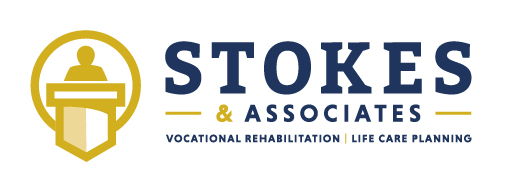Vocational Rehab Testing and Third Party Presence
When conducting Vocational Rehabilitation Evaluations, we are sometimes asked to have a third-party present for the interview and testing portions of the process. With regards to the testing portion, we must object to a third-party’s presence and the audio/video taping of the testing evaluation (or administration).To do so would violate copyright laws, affect contractual agreements with the publishing companies, violate professional standards and ethics, and potentially invalidate the test results.
The publishers’ standards state that all rights are reserved, including translation, and that no part of the publication may be reproduced or transmitted in any form or by any means without written permission from the publisher including: electronic or mechanical, photocopying and recording, or by any information storage or retrievable system, unless such copying is expressly permitted by federal copyright law. These restrictions apply to recordings made by third-party observers as well.
Additionally, professionals who use the publisher’s tests are responsible for maintaining test security. The Standards for Educational and Psychological Testing indicate that test users have the responsibility to ensure the confidentiality of the test results and testing materials consistent with legal and professional ethics requirements. Furthermore, test content should not be shared with curious non-professionals or made available for public inspection.
Similarly, the Code of Professional Ethics for Rehabilitation Counselors insist that rehabilitation counselors administer tests/instruments according to the parameters described in the publisher’s manuals. When tests/instruments are not administered under standard conditions, as may be necessary to accommodate clients with disabilities or when unusual behavior or irregularities occur during the administration, those conditions are noted in the interpretation, and the results may be designated as invalid or of questionable validity.
Finally, the Code of Professional Ethics for Licensed Rehabilitation Counselors, states that Licensed Rehabilitation Counselors will make reasonable efforts to maintain the integrity and security of tests and other assessment techniques consistent with law, contractual obligations, and in a manner that permits compliance with the requirement of the Code.
Aside from copyright and ethical concerns, studies have reported that the presence of a third-party observer during assessment, particularly, video/audio recording, negatively affects the test performance of the examinee.
Historically in our experience, test publishers have consistently refused to release test items. For the reasons stated above, we are bound by standards and ethics, as well as legal and contractual obligations to object to having a third-party present during testing, allowing audio/video recording of test administration, or releasing the test instruments, or test content.
To strategize with one of our licensed vocational experts or certified life care planners please call David Barrett at 504-454-5009, visit our website, www.stokes-associates.com or email dbarrett@stokes-associates.com.
Larry S. Stokes, Ph.D.
Aaron Wolfson, Ph.D.
Lacy Sapp, MHS, CRC, LPC, LRC, CLCP
Todd Capielano, M.Ed., LRC, CRC, LPC, CLCP
